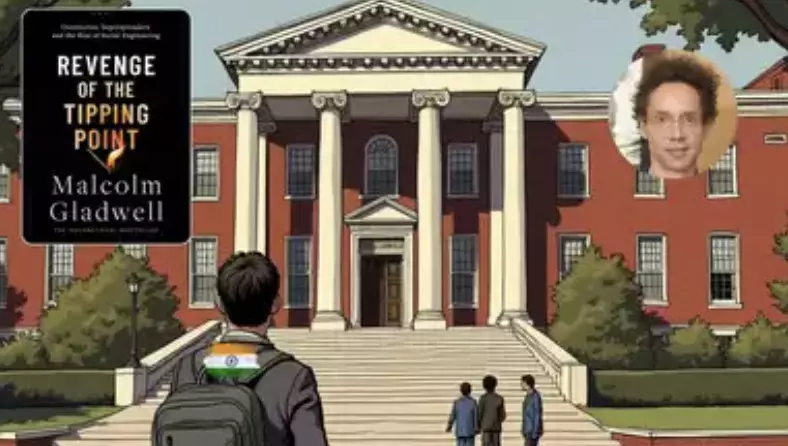Malcolm Gladwell: ‘Harvard’s application process likely excludes Indian applicants
Malcolm Gladwell: ‘Harvard’s application process likely excludes Indian applicants

The proportion of Asian-American applicants to Harvard has remained roughly constant at 15-20%. Indian applicants, in particular, face significant exclusion from Harvard’s application process.
Malcolm Gladwell, an advocate for meritocracy, expresses deep concern about the state of higher education and the corruption of meritocratic principles. He argues that meritocracy, one of the most significant inventions of the 20th century, is crucial for a free society. According to Gladwell, people lose faith in their society when they feel that merit and hard work are not rewarded. He emphasizes the importance of maintaining the purity of meritocracy, as neglecting it invites trouble.
Gladwell suggests several reforms to make educational and hiring processes more meritocratic. These include anonymizing CVs and job interviews and increasing the number of students admitted to prestigious institutions like Oxford and Cambridge to reflect population growth. He criticizes the lack of growth in these universities' admission numbers despite the increase in England’s population.
In 2022, the US Supreme Court outlawed race-based affirmative action, leading to a decline in Black and minority ethnic student enrollment at many universities. While the court's partisanship is often blamed, Gladwell points to a lack of educational diversity among America's senior lawyers. Most of the Supreme Court justices attended either Harvard or Yale law school, which he argues creates a narrow intellectual environment disconnected from day-to-day realities.
The central idea of The Tipping Point was that social trends, from crime waves to footwear fashions, spread much like epidemics. They grow slowly at first and then, suddenly, they take off. This he still believes to be true, but some of the stories Gladwell used to illustrate his theory have aged very badly.

